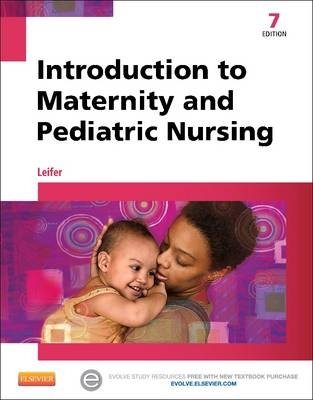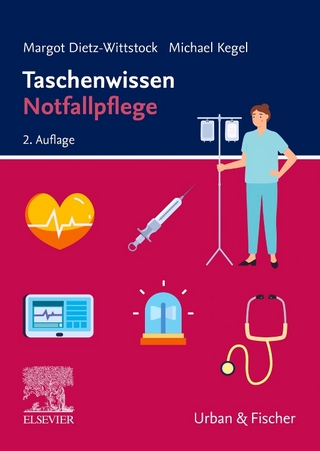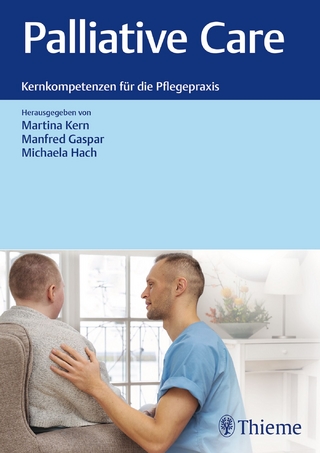
Introduction to Maternity and Pediatric Nursing
W B Saunders Co Ltd (Verlag)
978-1-4557-7015-1 (ISBN)
- Titel erscheint in neuer Auflage
- Artikel merken
"... provides clinical information and insights in a concise, structured and informative way that encourages critical thinking." Reviewed by Kim Shrieves on behalf of Nursing Times, April 2015
Concise, yet comprehensive, content is presented within the scope of practice for the LVN/LPN, but with sufficient depth to facilitate students in a ladder program allowing them to be successful with the ADN program requirements for the specialties.
Step-by-step procedure lists throughout the text help you master important maternity and pediatric nursing processes with Skills Performance Checklists available on the Evolve website.
Nursing Care Plans with Critical Thinking Questions reinforce the nursing process and strengthen problem-solving skills as applied to maternity nursing.
Logical organization of content from simple-to-complex and health-to-illness makes locating and accessing information easy.
Key terms with phonetic pronunciations and text page references help improve terminology and language skills of English-as-a-Second-Language (ESL) students and students with limited proficiency in English, before they enter clinical practice.
Health Promotion boxes emphasize the importance of family-centered care, health promotion and illness prevention, women's health issues, and growth and development of child and parent to help you understand and teach wellness and disease prevention to patients in your care.
Nutrition content highlights the importance of proper nutrition for women before, during, and after pregnancy (for those who are breastfeeding), as well as critical information about the nutrition needs and problems of newborns, infants, and children.
Nursing Tips throughout provide pertinent information applicable in the clinical setting that reinforces what you have just learned while building on previously learned information.
NEW! Unfolding case studies with illustrations follow first-time parents Tess and Luis throughout the stages of pregnancy and birth of their twins, with a series of critical thinking questions.
NEW! Updated NCLEX exam-style review questions have been revised to a higher cognitive level to better reflect the NCLEX examination.
NEW! Expanded coverage of bioterrorism and natural disasters better reflects the evolving role of the nurse in disaster situations.
NEW! Enhanced appendix includes Pediatric Lab Values for quick and easy reference.
Gloria Leifer, MA, RN, CNE
UNIT I: An Overview of Maternity and Pediatric Nursing 1. The Past, Present, and Future
UNIT II: Maternal-Newborn Nursing and Women's Health 2. Human Reproductive Anatomy and Physiology 3. Fetal Development 4. Prenatal Care and Adaptations to Pregnancy 5. Nursing Care of Women with Complications during Pregnancy 6. Nursing Care of Mother and Infant during Labor and Birth 7. Nursing Management of Pain during Labor and Birth 8. Nursing Care of Women with Complications during Labor and Birth 9. The Family after Birth 10. Nursing Care of Women with Complications Following Birth 11. The Nurse's Role in Women's Health Care 12. The Term Newborn 13. Preterm and Post-Term Newborns 14. The Newborn with a Perinatal Injury or Congenital Malformation
UNIT III: The Growing Child and Family 15. An Overview of Growth, Development, and Nutrition 16. The Infant 17. The Toddler 18. The Preschool Child 19. The School-Age Child 20. The Adolescent
UNIT IV: Adapting Care to the Pediatric Patient 21. The Child's Experience of Hospitalization 22. Health Care Adaptations for the Child and Family
UNIT V: The Child Needing Nursing Care 23. The Child with a Sensory or Neurological Condition 24. The Child with a Musculoskeletal Condition 25. The Child with a Respiratory Disorder 26. The Child with a Cardiovascular Disorder 27. The Child with a Condition of the Blood, Blood-Forming Organs or Lymphatic System 28. The Child with a Gastrointestinal Condition 29. The Child with a Genitourinary Condition 30. The Child with a Skin Condition 31. The Child with a Metabolic Condition 32. Childhood Communicable Diseases, Bioterrorism, Natural Disasters and the Maternal-Child Patient 33. The Child with an Emotional or Behavioral Condition
UNIT VI: The Changing Health Care Environment 34. Complementary and Alternative Therapies in Maternity and Pediatric Nursing
APPENDIXES Appendix A. Standard Precautions and Transmission-Based Isolation Precautions Appendix B. Sequence for Donning and Removing Personal Protective Equipment (PPE) Appendix C. The Joint Commission's Lists of Dangerous Abbreviations, Acronyms, and Symbols Appendix D. Commonly Used Abbreviations in Maternity and Pediatric Nursing Appendix E. Common Spanish Phrases for Maternity and Pediatric Nursing Appendix F. Multilingual Glossary of Symptoms Appendix G. Conversion of Pounds and Ounces to Grams for Newborn Weights Appendix H. Normal Vital Signs and Temperature Equivalents of Infants and Children Appendix I. Pediatric Laboratory Reference Appendix J. Blood Pressure Classifications in Children Complete Bibliography and Reader References Index NANDA-I Approved Nursing Diagnoses, 2012-2014
| Zusatzinfo | Approx. 510 illustrations (510 in full color) |
|---|---|
| Verlagsort | London |
| Sprache | englisch |
| Maße | 216 x 276 mm |
| Themenwelt | Medizin / Pharmazie ► Pflege ► Fachpflege |
| ISBN-10 | 1-4557-7015-9 / 1455770159 |
| ISBN-13 | 978-1-4557-7015-1 / 9781455770151 |
| Zustand | Neuware |
| Informationen gemäß Produktsicherheitsverordnung (GPSR) | |
| Haben Sie eine Frage zum Produkt? |
aus dem Bereich



